Wolfram Function Repository
Instant-use add-on functions for the Wolfram Language
Function Repository Resource:
Retrieve example data as a dataset
ResourceFunction["ExampleDataset"][arg] returns the ExampleData collection specified by arg as a Dataset. |
Get an example dataset:
| In[1]:= |
|
| Out[1]= |
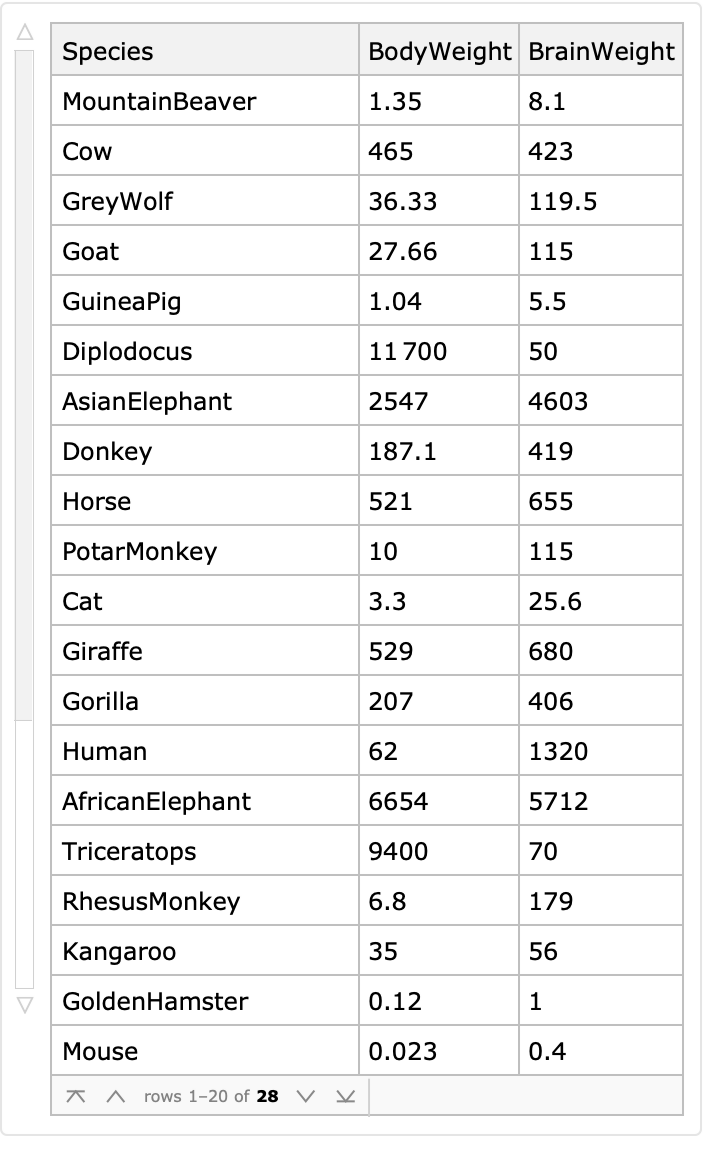
|
Get another dataset:
| In[2]:= |
|
| Out[2]= |
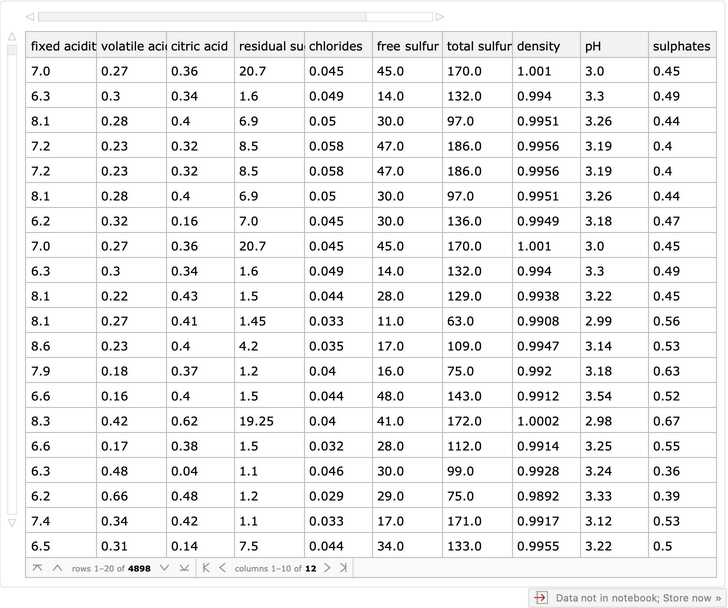
|
Find homes in Boston with an age greater than 98 years:
| In[3]:= |
|
| Out[3]= |
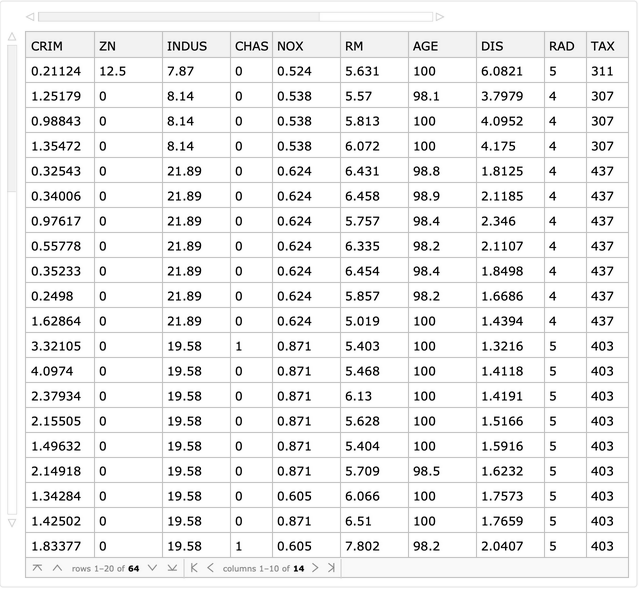
|
Cross tabulate odor and edibility for mushrooms (we can see that odor is a good indicator of edibility):
| In[4]:= |
![ResourceFunction["CrossTabulate"][
ResourceFunction["ExampleDataset"][{"MachineLearning", "Mushroom"}][
All, {#odor, Last[#]} &]]](https://www.wolframcloud.com/obj/resourcesystem/images/ec3/ec30eed0-9151-4ef3-b7e0-404125cf06a4/2053b4a879b4351c.png)
|
| Out[4]= |
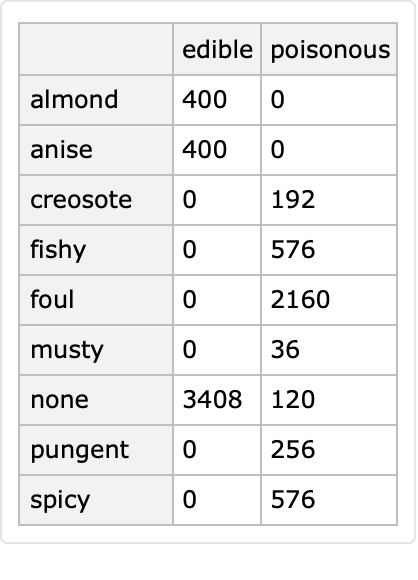
|
If an unknown dataset name is specified, then the result is a Failure:
| In[5]:= |
|
| Out[5]= |
|
The expected data types for the "Statistics" datasets in ExampleData are "MultivariateSample", "TimeSeries" and "EventSeries". ExampleData has the following data types:
| In[6]:= |
|
| Out[6]= |
|
A Failure is returned for other data types:
| In[7]:= |
|
| Out[7]= |
|
Here is a summary of the successes and failures of for different data types in the "Statistics" example data collection:
| In[8]:= |
![Quiet[ResourceFunction["RecordsSummary"]@
Map[ExampleData[#, "DataType"] -> Head[ResourceFunction["ExampleDataset"][#]] &, ExampleData["Statistics"]]]](https://www.wolframcloud.com/obj/resourcesystem/images/ec3/ec30eed0-9151-4ef3-b7e0-404125cf06a4/436d0f1c4e88db62.png)
|
| Out[8]= |
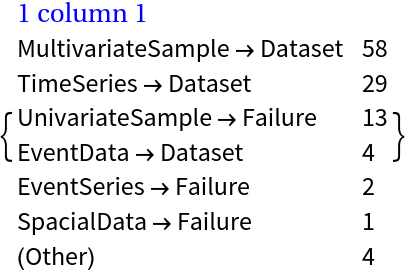
|
Some "MachineLearnining" example data have data shapes and variable names that do not match. In those cases, ExampleDataset returns Failure:
| In[9]:= |
|
| Out[9]= |
|
Compare the length of the variable names:
| In[10]:= |
![Length[Flatten@
Apply[List, ExampleData[{"MachineLearning", "BostonHomes"}, "VariableDescriptions"]]]](https://www.wolframcloud.com/obj/resourcesystem/images/ec3/ec30eed0-9151-4ef3-b7e0-404125cf06a4/65d8e8de9932a447.png)
|
| Out[10]= |
|
With the dimensions of the data:
| In[11]:= |
|
| Out[11]= |
|
Here is an association that shows the successes and failures over the "MachineLearning" datasets:
| In[12]:= |
|
| Out[12]= |

|
Summaries for all "Statistics" datasets in ExampleData that have six columns:
| In[13]:= |
![Block[{resAll},
resAll = Quiet[Association@
Map[# -> ResourceFunction["ExampleDataset"][#] &, ExampleData["Statistics"]]];
ResourceFunction["RecordsSummary"] /@ Select[resAll, Head[#] === Dataset && Dimensions[#][[2]] == 6 &]
]](https://www.wolframcloud.com/obj/resourcesystem/images/ec3/ec30eed0-9151-4ef3-b7e0-404125cf06a4/356eaec4fae05f82.png)
|
| Out[13]= |
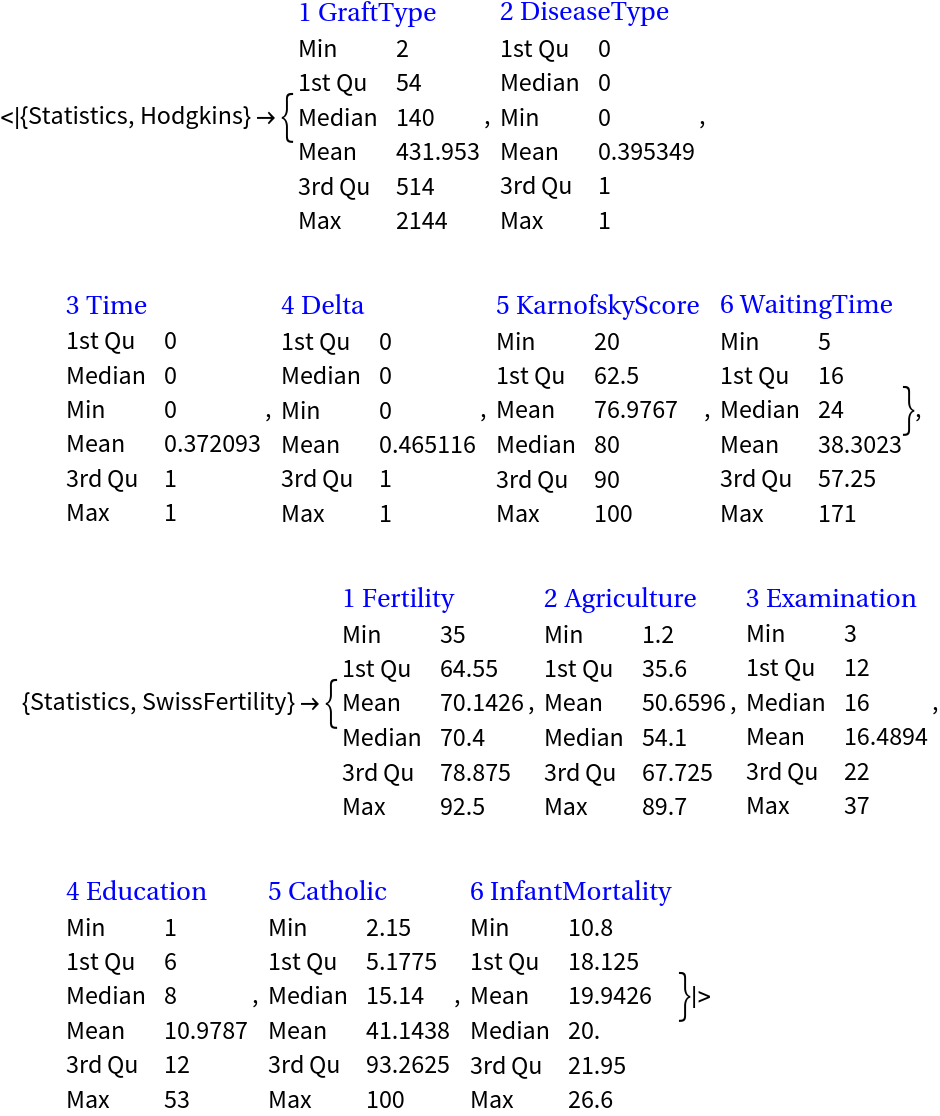
|
This work is licensed under a Creative Commons Attribution 4.0 International License